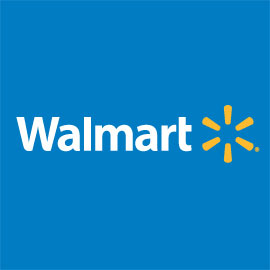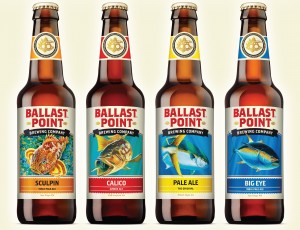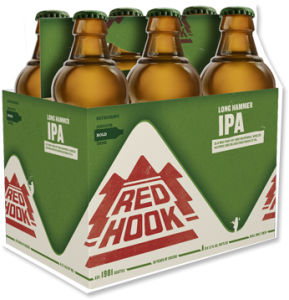
Walmart, the largest retailer in the world, has said it wants to double its alcohol sales by 2016.
One area of the store Walmart would like to see customers spending more time is the beer aisle. The company is hoping it can grab a significant chunk of the off-premise U.S. beer market, which IRI — a Chicago-based market research firm — pegs at $29.7 billion dollars for the 52-week period ending Nov. 3.
To prove its commitment to category, Walmart has added 100,000 sq. ft. of refrigerated space across its 3,500 locations that sell alcohol in the last 18 months.
While much of that space will likely be dedicated to selling larger domestic brands from Anheuser-Busch InBev and MillerCoors, as well as major imports from Heineken and Crown, Walmart does want to improve the selection in its craft sets.
“We tailor our assortment to each store individually,” said Danit Marquardt, the director of corporate communications for the company. “We want to make sure we offer the right brands for our customers in each market we serve.”
Marquardt would not share specific details on how they plan to work with craft beer suppliers, but said the retailer is beginning to express more interest in the category. To help grow sales of craft beer, Walmart has expanded its buying team, improved its assortment and is beginning to work with smaller craft companies like San Diego-based Ballast Point, which which it started selling in some of its San Diego locations last month, and Baxter Brewing, in Maine.

Still, that business model where supply is small and, at times, limited, can be in conflict with Walmart’s big lots style execution.
“They have said that they are comfortable with us being out of stock and they understand that our seasonals will come and go,” he said. “It shows that they have a lot of enthusiasm for the category.”
But Ballast Point is the exception, not the rule. Tom Fox, a nationally recognized expert in category management said that the retailer might play with craft, but much of its attention will be focused on bigger suppliers.
“As someone who is looking at the biggest picture here, I suspect that Walmart will be looking at the biggest brands,” he said. “The ones who are salivating the most are big distributors and brewers. They are going to have an enormous opportunity to get additional displays.”
Rob Mitchell, the general sales manager of Bronx, NY-based Manhattan Beer Distributors, one of the largest wholesalers in the country, had similar comments.
“They talk like their appetite is high, but we have not seen that executable at store level,” he said. “It has been very difficult for smaller, local or regional crafts, that don’t have a voice at the table in Bentonville, to have their compelling story told. It’s one that resonates locally but not nationally.”
One brand licking its chops at Walmart’s new emphasis on beer is Craft Brew Alliance, which produces and markets the Widmer, Redhook and Kona craft beer brands. Nationally distributed through the AB wholesaler network, CBA executives believe they’re positioned to capitalize on Walmart’s beer push.
“Quirky brands provide quirky service,” said Andy Thomas, the president of commercial operations for CBA. “That will manifest with Walmart. They are pretty demanding in terms of how they expect you to service their accounts.”

Behind its Redhook Longhammer IPA and Audible brands, CBA developed a program aimed at fishing and outdoor enthusiasts shopping at Walmart. Called Redhook, Line & Sinker, it will have display items that will be adjusted to reflect the types of fishing in a particular region. In Florida, the program has a saltwater fishing focus whereas in the Pacific Northwest, its focus on Salmon fishing.
The program would involve a cross-merchandising offer with various fishing items.
“You have a Walmart consumer who is out there looking to buy fishing and tackle,” said Thomas. “We have an opportunity to talk to that consumer. That excites Walmart because they know it’s a trade-up opportunity. It is an occasion they can ‘steal.’”
Still, while Fox said that Walmart is likely to expand its craft sets with promotional displays from nationally distributed craft companies like CBA, Boston Beer and Sierra Nevada, one of its its biggest competitors, Meijer, is already demonstrating a greater willingness to work with smaller regional brands.
“There is no doubt that Walmart is still just scratching the surface,” said Fox. “Meijer had 5 times the space allocation for craft, compared to Walmart, at locations that I’ve visited in Michigan.”
That’s not to say Walmart isn’t experimenting. In Kansas City, the retailer worked closely with Boulevard Brewing to “interrupt shoppers” by developing displays that highlighted fall seasonal beers.
“They built some displays where they highlighted Octoberfest beers and interrupted shoppers with a litany of brands — some local, regional, and national,” said Bobby Dykstra, the director of national accounts for Boulevard. “We customized some point of sale and made sure we were a part of those displays but it was more focused on the segment and the style.”
But to double its total beer sales by 2016, Fox said Walmart will continue to focus on increasing sales of its large domestic brands by competing on price.

“Walmart could triple its craft business and it wouldn’t have a huge impact on doubling their sales in three years,” he said. “Craft will be a part of their plan but it can’t be the hallmark if they want to double their business.”
And while some craft brewers might be concerned that Walmart will discount their products, Fox said its not likely.
“The perception of price defines the position of a brand,” he said. “I would be shocked if they used it as a way to drive volume and hurt a brand’s equity.”
At least two Walmarts that Brewbound called in Maine didn’t appear to be offering steep discounts. A 12-pack of Redhook Longhammer IPA was $13.28 at Walmart while its closest competitor, a Hannaford grocery store, was selling it for $13.99. In Maine, Lewiston, based Baxter Brewing said six-packs of its Pamola Extra Pale Ale sell for $9.49 at select Walmarts throughout the state.
